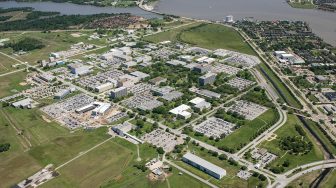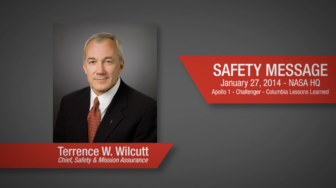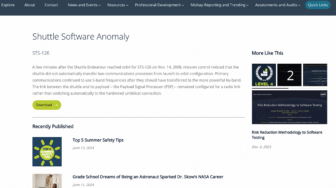Russel E. Rhodes: Shuttle Launch Development and Operations
As NASA approaches the final flight of the Space Shuttle, it is timely to reflect upon the many important lessons learned from the formulation, development, and operation of the Space Shuttle program. The Space Shuttle represented a dramatic departure from the launch and space vehicles of the preceding Apollo era, with a new focus on routine access to low-Earth orbit, utilizing a high degree of reusability—and higher flight rates—to attempt to meet its many challenging goals. There is much to be learned from this pioneering effort and, fortunately, many of the master program/project manager practitioners who were involved in the shuttle program are still available to share these stories and lessons learned with current and future practitioners within NASA. This panel will examine the transition from the Apollo era to the shuttle program, the early conceptualization and definition of the shuttle, the development of its many challenging new systems and subsystems, the changing political environment, and its flight and mission operations over the past thirty years since its first flight: STS-1, on April 12, 1981. The panelists have experience in each of these phases of the program, including extensive involvement in Apollo through the development of the Space Shuttle itself, and its subsequent launch, flight, and mission operations, which they will share from their unique perspectives.
Russel E. Rhodes is a native of the state of Indiana, where he earned a BS in aeronautical engineering from Indiana Institute of Technology in 1958, and a senior member of the American Institute of Aeronautics and Astronautics for more than fifty-five years. He has been employed for more than fifty years at Kennedy Space Center.
Recorded at Masters Forum 20.








